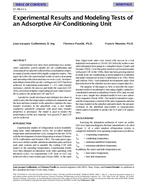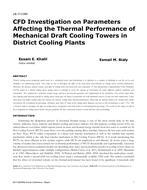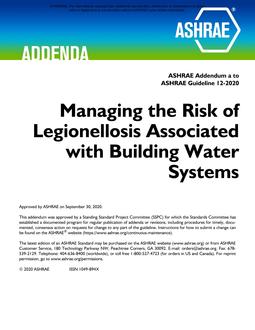The fact that humidity control of indoor spaces in humid climates is one of the key elements in the design to considerhowever, the challenges are significant energy costs associated with dehumidification such as people’s fresh air providing.Since the latent load is remarkable in the fresh air, full fresh air systems (by DOAS units) face a severe challenge indehumidifying air in these areas.
This paper presents a new method to curb the dependence of HVAC systems on electricity usage in public buildings. In thisapproach, an ice storage system, which runs in non-peak load time, supplies the chilled water for dehumidification coils.Hence, the dehumidification coils are applied plus conventional coils to every terminal unit to control the humidity of everyzone. In other words, all air handling units take advantage of 6-pipe coils (2-pipe for cooling coil, 2-pipe for heating coil, and2-pipe for dehumidification coil), and every fan coil unit is similarly equipped with 4-pipe connections of coils by adding thedehumidification coil to the conventional unit. All cooling coils are supplied with central chiller units, whereas thedehumidification coils are fed using an ice storage system to mitigate electricity usage in peak loads.
Product Details
- Published:
- 2022
- Number of Pages:
- 10
- Units of Measure:
- Dual
- File Size:
- 1 file , 3 MB
- Product Code(s):
- D-ICEB22-08
- Note:
- This product is unavailable in Russia, Belarus


